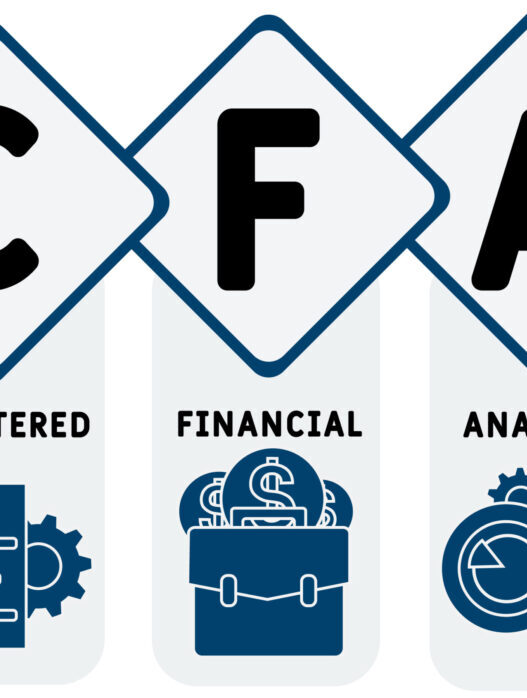Passing CFA Level 1 provides a strong foundation for aspiring financial professionals looking to enter the field of investment analysis.

While it is only the first step in the CFA charter process, the knowledge gained from Level 1—spanning ethics, quantitative methods, financial reporting, and portfolio management—aligns closely with the skill set required for an entry-level Investment Analyst position.
What Does an Investment Analyst Do?
An Investment Analyst researches financial assets, including stocks, bonds, mutual funds, and other investment vehicles, to make recommendations for portfolios or specific investments.
This role typically involves gathering, analyzing, and interpreting data on markets, economic conditions, and company performance.
- Market Research: Investment analysts track global and regional markets, economic trends, and sector performance to identify investment opportunities and risks.
- Company Valuation: Using techniques learned in CFA Level 1 (like discounted cash flow analysis and relative valuation), analysts assess the intrinsic value of companies, determining if their stocks or bonds are over or undervalued.
- Financial Modeling: Analysts build financial models to project a company’s future performance based on current data, helping investors understand potential returns on investment.
- Reporting and Recommendations: Based on their analysis, investment analysts prepare detailed reports summarizing their findings and offer recommendations on buying, selling, or holding assets.
How CFA Level 1 Helps:
CFA Level 1 covers critical topics that align directly with an investment analyst’s responsibilities, such as:
- Ethical Decision-Making: CFA’s emphasis on ethics ensures that analysts approach their work with integrity, a must in the financial industry where misrepresentation or bias can severely damage credibility.
- Financial Reporting and Analysis: This section of the CFA curriculum teaches candidates to read and interpret financial statements, crucial for evaluating a company’s health and making investment decisions.
- Equity and Fixed Income Analysis: Investment analysts need to understand both equity (stocks) and debt (bonds) markets, assessing how interest rates, market cycles, and economic indicators affect asset values.
- Quantitative Methods: Analysts use statistical techniques to forecast future market or company performance. This is particularly useful when developing financial models for projections.
Career Path and Growth
Many who start as investment analysts eventually specialize in areas such as asset management, portfolio management, or research analysis.
In these roles, professionals manage investment portfolios, create investment strategies, or provide in-depth research for institutional clients.
Progressing through the CFA exams (Level 2 and Level 3) can accelerate career advancement into more senior roles, such as Portfolio Manager or Chief Investment Officer.
Key Skills for Success as an Investment Analyst
1. Analytical Skills: Investment analysts need to be comfortable working with large amounts of financial data, applying both qualitative and quantitative techniques to analyze trends and forecast future performance.
2. Attention to Detail: Small mistakes in financial modeling or analysis can lead to incorrect investment recommendations, so accuracy is critical.
3. Communication Skills: Analysts must present complex financial information in a clear and concise way to clients, portfolio managers, or institutional investors.
4. Technical Proficiency: Familiarity with financial tools such as Excel, Bloomberg, or specialized software for financial modeling is essential for data analysis and reporting.
5. Market Awareness: Staying updated on global financial markets, macroeconomic factors, and geopolitical developments is essential, as they directly affect investment decisions.
Industry Demand and Work Environment
Investment analysts are sought after in many sectors, including:
- Asset Management Firms: These firms manage investments on behalf of clients, and analysts provide the research needed to make informed decisions.
- Investment Banks: In banking, analysts focus on valuation and risk assessments to guide mergers, acquisitions, or other large financial transactions.
- Private Equity and Hedge Funds: These firms rely on analysts to identify high-potential investment opportunities that may not be publicly traded.
- Insurance and Pension Funds: These organizations need analysts to ensure their investments generate the returns necessary to meet their long-term liabilities.
The work environment for investment analysts can be fast-paced and demanding, often requiring long hours during peak periods, such as earnings seasons or economic shifts. Analysts spend much of their time working with data, meeting with company executives, and collaborating with senior financial managers or portfolio managers.
Salary Expectations
Entry-level investment analysts typically earn competitive salaries, ranging from $60,000 to $90,000 per year, depending on the firm and geographic location. Bonuses and performance-based incentives are also common, especially in investment banking and asset management roles.
As analysts gain experience and move into more specialized roles, compensation can increase significantly, particularly for those working in high-demand sectors like hedge funds or private equity.














